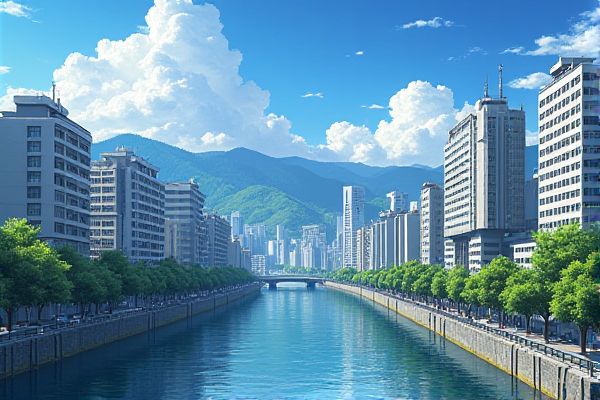
Emergency services and contact information in Japan: Dial 110 for police emergencies. Dial 119 for ambulance or fire services. English-speaking operators available. Notify operator of your location. Learn basic Japanese emergency phrases. Emergency assistance at major train stations. Disaster prevention apps available. Register with your embassy for alerts. Know nearest hospital and police station. Emergency kits recommended for earthquakes.
Dial 110 for police emergencies.
To contact the police in Japan for emergencies such as crimes or traffic accidents, dial 110. When calling, remain calm, answer the call-taker's questions clearly, and provide details such as the location, time of the incident, and your personal information. If you cannot communicate in Japanese, an Interpreter will be connected to assist you.
Dial 119 for ambulance or fire services.
In Japan, dialing 119 will connect you with the Fire Department to request an ambulance or report a fire. This crucial number is accessible nationwide and can be dialed from any phone, including landlines, mobile phones, and public telephones. When using a fixed or public phone, there's an option for automatic address tracking, ensuring timely assistance in emergencies. For more detailed information on responding to Medical Emergencies in Japan, visit the Japan Living Guide.
English-speaking operators available.
In Japan, accessing emergency services can be challenging for non-Japanese speakers, as the primary emergency numbers—110 for police, 119 for fire and ambulance, and 118 for the Coast Guard—may not always have English-speaking operators. However, there are valuable resources available for English-speaking support. Among these, the AMDA International Medical Information Center provides assistance, while TELL Lifeline offers mental health support. Additionally, the Japan Visitor Hotline delivers 24/7 assistance in multiple languages, including English, Chinese, and Korean, making it a crucial service for visitors and residents alike.
Notify operator of your location.
When calling emergency services in Japan, it is crucial to notify the operator of your location. For police, dial 110; for fire and ambulance services, dial 119; and for the coast guard, dial 118. Clearly stating your location ensures prompt and accurate response to your emergency. For comprehensive guidance, you can visit the Japan Travel website, where you'll find essential information for navigating such critical situations.
Learn basic Japanese emergency phrases.
This guide provides essential Japanese phrases for emergency situations, including how to report a fire or medical emergency, explain the situation to the operator, and provide personal information. Key phrases include "Huo Shi desuka, Jiu Ji desuka?" (Is it an emergency or a fire?), "kegadesu" (I'm injured), and "Jiu Ji Che woHu ndeXia sai" (Please call an ambulance). For those looking to equip themselves with these vital expressions, the Savvy Tokyo website offers a comprehensive collection of phrases that can be crucial during unforeseen events. Learning these expressions can provide not only peace of mind but also the potential to respond effectively when it matters most.
Emergency assistance at major train stations.
In case of an emergency at a major train station in Japan, you can dial 119 for the fire department or an ambulance, and 110 for the police. Train crew members are also available to assist, and trains are equipped with sensors to handle situations like earthquakes. For more detailed guidance, you can visit the JR Train Emergency Information page. This resource offers invaluable insights into navigating unexpected situations while traveling on Japan's renowned train system.
Disaster prevention apps available.
The Safety Tips app from the Japan Tourism Agency provides disaster-related information in 15 languages, including weather warnings, earthquake early warnings, and civil protection information. Additionally, apps like the Tokyo Metropolitan Government's Disaster Prevention Information App and NHK's multilingual app offer extensive disaster prevention resources, including maps, evacuation sites, and emergency alerts. For more detailed information, visit the Japan Tourism Agency website where you can learn about these valuable resources in ensuring you stay informed and prepared during potential emergencies.
Register with your embassy for alerts.
Registering with the Smart Traveler Enrollment Program (STEP) is an essential step for travelers to ensure they receive real-time updates from the local U.S. Embassy on health, weather, safety, and security. By enrolling in this service, you enable the embassy to contact you swiftly in case of an emergency, thereby enhancing your safety abroad. Additionally, it assists in establishing communication with your family or friends in the United States if there's urgent news that needs to reach you.
Know nearest hospital and police station.
To find the nearest hospital, you can use the website of your local Medical Association to locate emergency rooms. For police stations, you can refer to specific prefectural lists, such as those for Chiba or Kanagawa, which provide detailed addresses and phone numbers. For more comprehensive information, visiting the Japan Emergency Number page can be highly beneficial in navigating emergency services across Japan effectively.
Emergency kits recommended for earthquakes.
In Japan, recommended emergency kits for earthquakes include essential items such as flashlights, portable radios, helmets, protective hoods, work gloves, blankets, batteries, lighters, candles, water, non-perishable food, can openers, knives, extra clothing, first-aid kits, and important documents like bankbooks and personal seals. These kits are designed to provide the necessary tools and supplies to keep individuals and families safe during emergencies. For more detailed guidance on assembling these kits, visit Japan Today's comprehensive guide on How to Make a Survival Kit for Emergencies in Japan.
